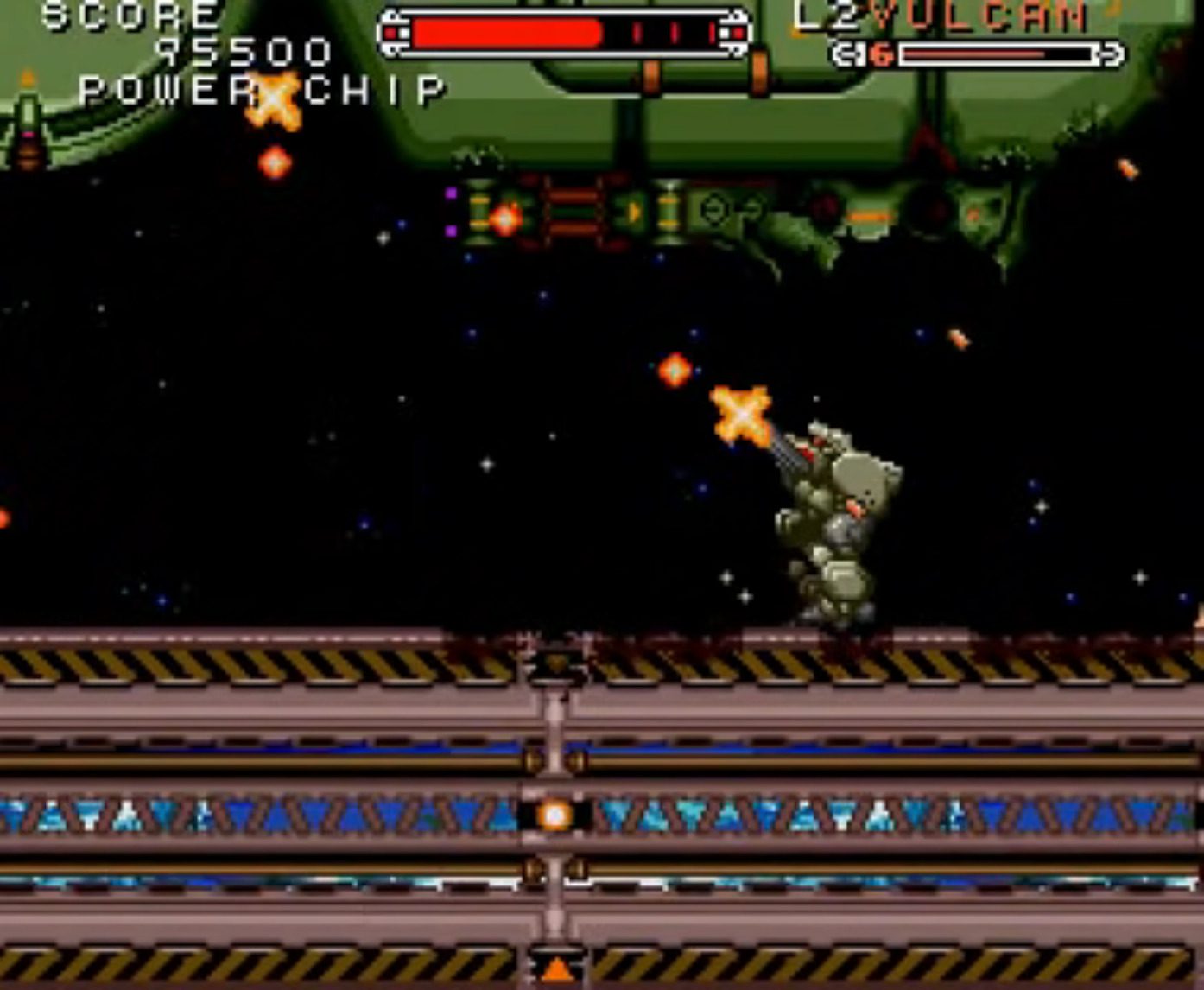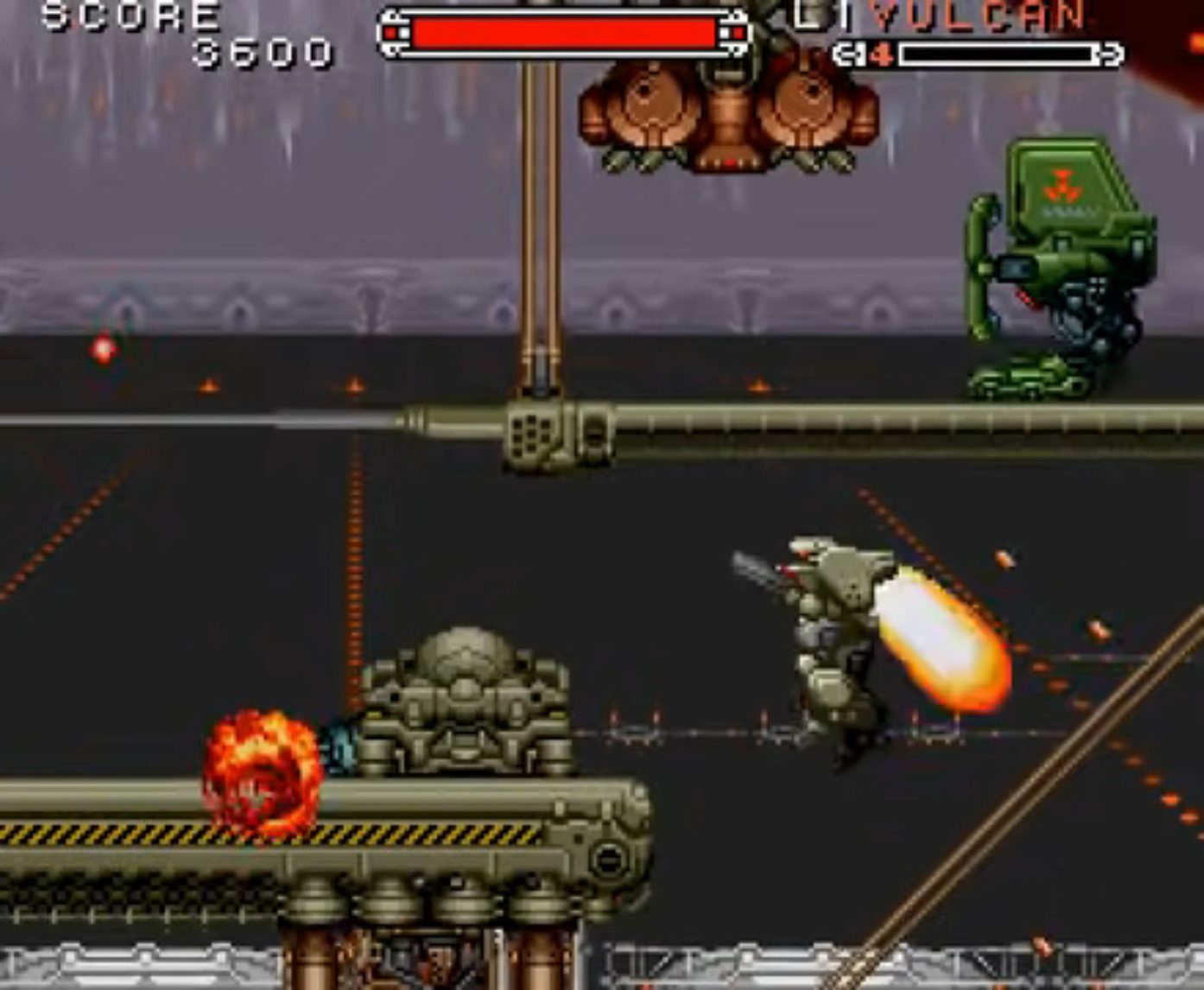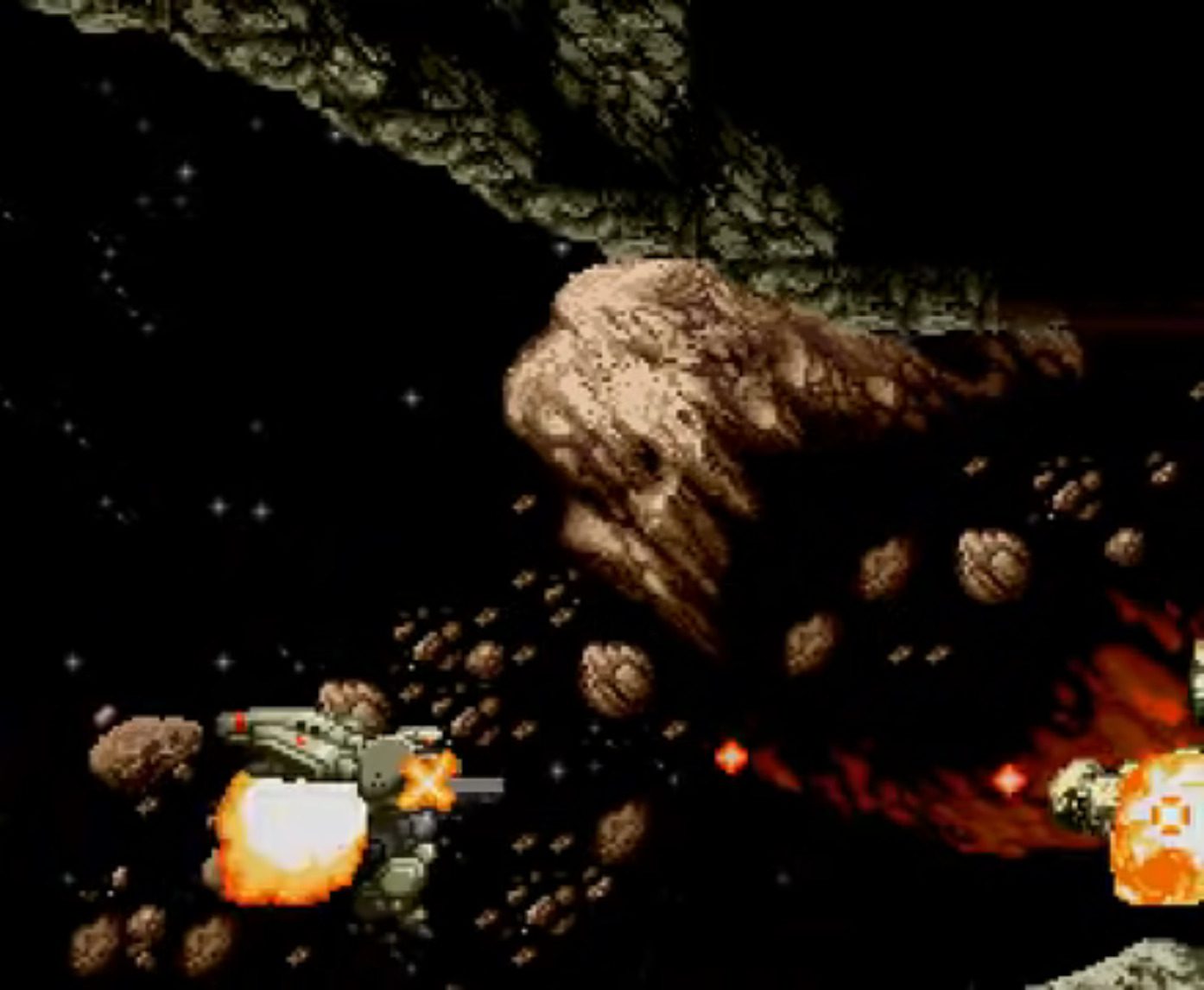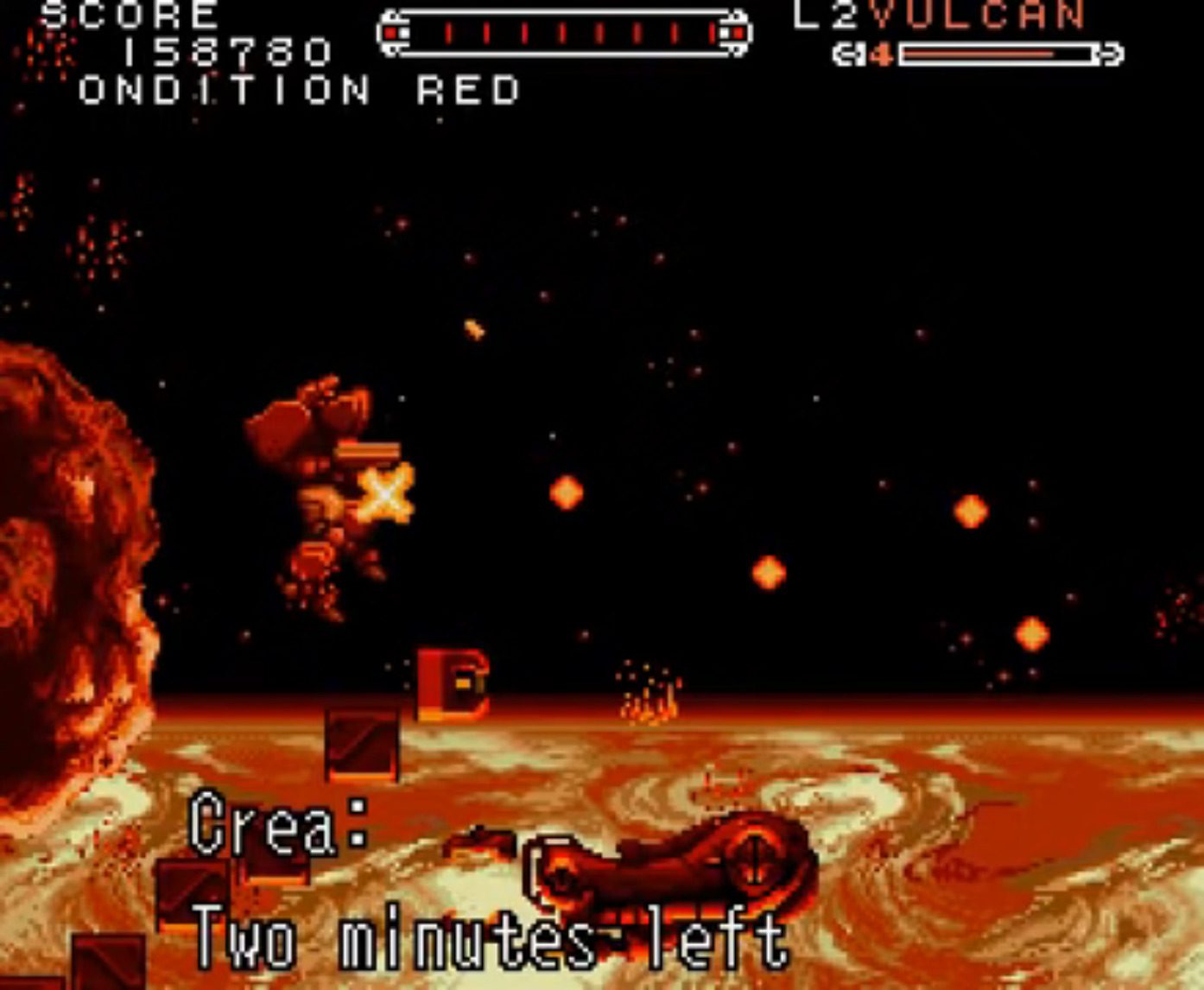Metal on metal
I suppose the name Cybernator might seem cool if it’s the ’90s and you’re under 12. Which I was, at the time. In Japan, it’s known as Assault Suit Valken, whereas in North America, it sounds like the name of a bootleg Robocop action figure that you find at the back of a sketchy convenience store that still has a sun-bleached poster for the first Harry Potter movie in their window.
It’s part of the Assault Suit series that began with Assault Suit Leynos — I’m sorry, that was localized to the similarly goofy Target Earth — but if you’re expecting that to give you any idea of what you’re in for, the series is almost legendary for the fact that it never sticks to one formula. Target Earth and Cybernator are at least both side-scrolling shooters, but they clearly have two different design philosophies. Target Earth is about shooting robots, and Cybernator is about “Heck yes! Giant robots!”

Cybernator begins with explicit penetration; the kind they warn you about in gym class. A guy rams his long, thick spaceship into the docking port and launches his giant robots inside to wreck up the place. You’re one of those robots. You play as this big green brick of a mech, and your job is to carry out various military ops.
The actual background to the game is kind of messy. There’s a war going on, that’s about as much as you’re given to go off of. It goes the route of labeling all soldiers as disposable pawns who just fight because that’s all they’ve ever known. I guess this is to make it feel like you’re less of the last best hope, and more of just a regular guy. The in-game plot feels a lot like just a bunch of different, unrelated ops. There’s a personal subplot underneath, and while it’s not groundbreaking, this was the SNES, so it was kind of neat at the time.
The big thing that makes Cybernator distinct is the fact that your mech controls like a big hunk of steel. It lumbers along invincibly. It launches itself off the ground using rockets that struggle to lift its mass. Weapons blast chunks out of the margins of the level, and one of your first two default weapons is just its fist. Coming from an era of nimble protagonists who jump with the power of a million squats, a hulking protagonist is a unique angle.

There’s a nice assortment of levels. From the frontal assault of the first level, the second has you cruisin’ through an asteroid field. The next starts with a zero-G section. The actual mechanics are pretty solidly outlined, but one level isn’t exactly like the other.
You start Cybernator off with two weapons, but with a bit of exploration, you pick up more as you advance through the game. The fact that you not only find additional weapons, but also upgrades for the ones that you have give a hint of exploration to the otherwise linear game. Levels are rather right-to-left, but there are plenty of alternate routes and little nooks to check out. You can probably get by without scouring every niche, but don’t you want a powerful fist? Don’t you want the most powerful fist?
You also have a shield, which I always forgot about until I started getting my butt kicked and realized my butt might be slightly less kicked if I blocked every once and a while. Again, it lends to the feeling of being in a 4-story mech when you can put up an invincible block of steel.

You’re accompanied on your campaign by the crew of the Versus. The Japanese version gave all these characters portraits to go with their dialogue, but the SNES version seemed to censor this to hide the fact that you were fighting humans. It’s done sloppy, too. The text just kind of sits there at the bottom of the screen, and a lot of the time, it’s not terribly straightforward who you’re talking to.
Cybernator also seems to follow Konami’s lust for limited continues. It’s pretty brutal here, you’re given three continues with one life each. Because there’s so much variety, you never really know what’s up ahead or how best to approach it. That means you wind up playing the first few levels over and over, then drop all your lives when you hit something new until you learn the trick to survival. It’s a short game, but getting to the end of it requires some patience.
There’s also the opportunity to fail in some of your missions. For example, if you don’t kill the boss in time. Then you wind up with the bad ending, so… It’s lucky that Cybernator is such an enjoyable experience because you’ll probably find yourself playing it more than once to see a happy ending.

There just isn’t much in the era that feels quite like Cybernator. It’s an impactful, weighty game. The soundtrack is punchy and energetic, and the action is explosive. Assault Suit Leyno… Oh, I mean, Target Earth, by comparison, is a more standard shooter. Cybernator is like a side-scrolling tank simulator. It gives the sense of a militaristic game in an age of brightly colored, ‘tuded up protagonists. It’s half Contra and half Steel Battalion.
It’s funny, because the follow-up, Assault Suit Valken 2, was a turn-based strategy game for the PS1. The closest thing we got to a true sequel was a PS2 port of the SNES title that was released only in Japan.
That’s fine, I guess. I kind of feel like Cybernator hit the mark pretty solidly. In an ideal world, we would have got some clumsy early-3D experiment with its philosophy, but maybe Armored Core was close enough. As it stands, Cybernator is an easily overlooked gem in the SNES library. It was one of those games that I rented in my youth that left an impression. Except I couldn’t remember the name of it until years later. No wonder. Cybernator? Was that name picked from a hat? It sounds like a placeholder name that marketing grabbed onto before something better could be found.
For other retro titles you may have missed, click right here!








